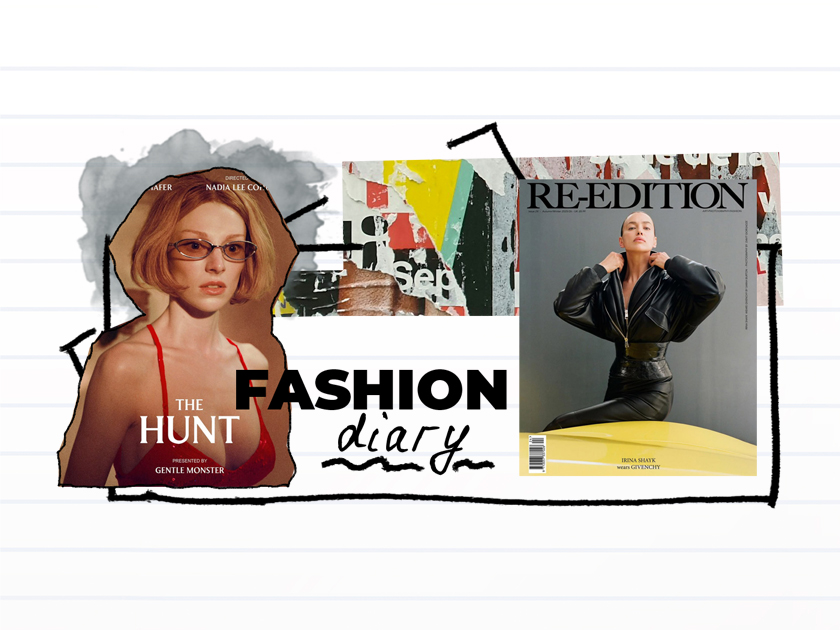Among the multitude of revered contemporary directors, One of the most passionate is the Franco-Argentine Gaspar Noé. Since his debut with the brutal ‘Solo contra todos’, each of his new proposals has gone further in terms of depicting brutality and violence, especially with the uncomfortable ‘Irreversible’ or ‘Enter the Void’, one of the main titles of la new French end. After peaking with ‘Clímax’, his most accessible feature film to date, and taking a subversive look at the industry itself with ‘Lux Æterna’, the director dares to make one of his most intimate and personal proposals with ‘Vortex’.

Presented in the Cannes Première category at the 74th Cannes Film Festival and winner of the award for best film in the Zabaltegi section at the 69th San Sebastian Film Festival, ‘Vortex’ was born from two personal experiencesthe first has been experienced by the director himself ever since suffered a brain hemorrhage in December 2019 that nearly cost him his life or left with consequences that would have prevented him from living independently and the other was the death of his mother, suffering from Alzheimer’s, who died in his own arms. Two well-marked realities in a feature film which, while looking head-on at decrepitude and the extreme decline of old age, avoids excessively graphic situations.
The film begins with an idyllic sequence of an octogenarian marriagehe is a film intellectual and she is a renowned psychiatrist, having an aperitif on her terrace in her cozy attic in a Parisian neighborhood near Stalingrad station, to listen to the song ‘Mon amie, la rose’, by Françoise Hardy, a song about the ephemeral of beauty, love and life itselfprelude to what Noah is about to tell, when that peaceful abode of two retired intellectuals and bourgeois became a prison where the director paints a careful portrait of the decrepitude and decline of life.

Following in the footsteps of “Lux Æterna”, which was an experimental film essay, Noé divides the shot of the film in two, in a very graphic way, the contrast of the experiences of a marriage broken by illness, because she has Alzheimer’s and he has serious heart problems. This technique allows us to see how they coexist two realities separated by time, which give a feature film greater breadth who has no qualms when it comes to portraying how little by little the body itself is shutting down due to the cycle of life itself.
The most contained and direct film by Gaspar Noé
Formally, It is the most contained film of the Franco-Argentine. But, in reality, it is the culmination of a process of perfecting a cinematic look that has taken shape with each new proposal., being able to offer brutality and excesses from a more implicit approach, leaving the viewer to wander into what is seen. This manifests itself when portraying the marital relationship of the main couple, in which it is understood that the wife has a very strong grudge against her husband, who has been constantly unfaithful throughout their relationship, just as it appears reflected in the tape, when he tries to film the killing in a rather absurd way.

These subtleties combine very well with that vital vortex that flows into the last moments of the spouses’ life. and how Noah transforms that pleasant attic into a labyrinth of corridors and a simple action like heating water to make tea can be deadly if you leave the gas on in the kitchen. Added to this are other typical themes of the director, such as drug addiction, since then the offspring of marriage is a faithful reflection of the usual characters of Franco-Argentine cinema. Furthermore, placing an addicted child as the one who must become the guardian of their parents gives them a greater dose of realism, remembering old age and caring for the elderly does not distinguish between social classes or origins.
Of course, you can’t let your main tandem get away. Although the director himself wanted to remove symbolism from the choice of his main duo, It is surprising that ‘Vortex’ is played by Françoise Lebrun and Dario Argento. The first is one of the living icons of the Nouvelle Vague, remembered above all for her interpretation in “La mamma e la puttana” by Jean Eustache. The second had never acted in a project as an actor, much less had he faced a feature film of this magnitude without him being behind the cameras. Just Argento is one of the few living symbols of Italian yellow. Both shape the cinema of two very clear eras, of two different aspects and their presence in the film gives a greater artistic interpretation to a film that already has multiple references due to its theme.

Although not seen by a certain industry, ‘Vortex’ is the heir to Michael Haneke’s ‘Love’ and Florian Zeller’s ‘The Father’, as it has violence as a visual metaphor in the German director’s film and the ability to transform a family home into a mental prison in the work of the famous French playwright. If you add to this a contained but direct portrait of the decadence of the human being, is Noé’s most uncomfortable and honest proposalabove all because it forces the public to look in the mirror of life, to realize the proximity of death itself, something that Western society seems to want to hide under the false pretexts of the eternal pursuit of happiness.
Note: 8
The best: The decision to split the shots of the film in two. The one that encourages us to become aware of the fragility of the human being, always keeping death in mind.
Worse: Some scenes lack redundancy in the first part.
Source: E Cartelera




